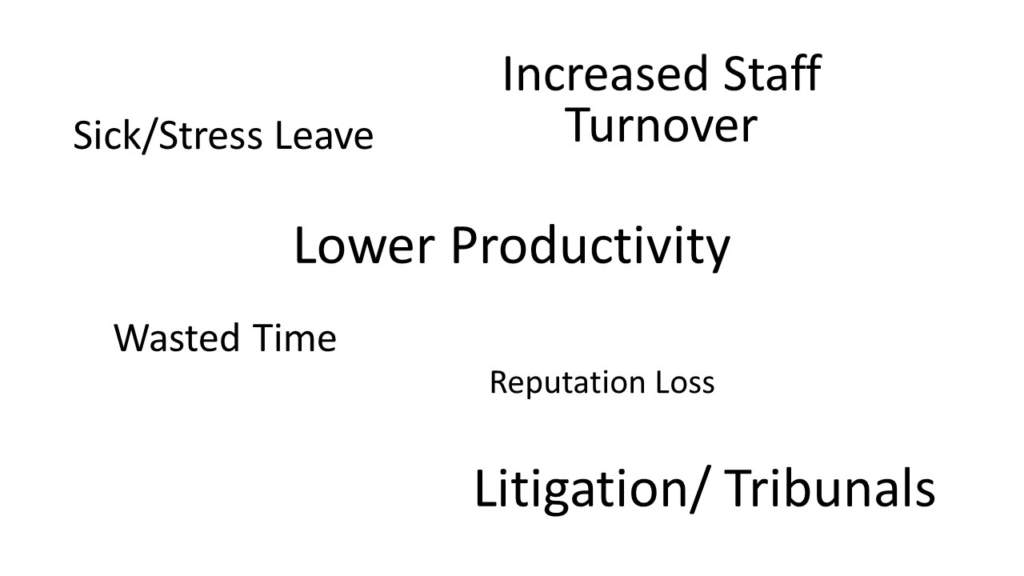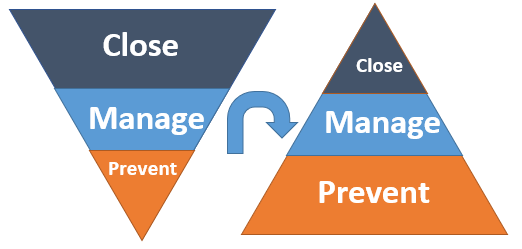The 5 Conversational Integrity Capacities
2nd April 2019

Preventing conflict is better than a cure!
CMP have been experts in the field of workplace conflict management for 30 years. We support the development of soft skills needed to resolve disputes effectively before they arise. Such skills are known to us as Conversational Integrity and promote a ‘Clear Air’ workplace, in which the cost of conflict is lowered, both for your company and its employees.
All of the below factors are costs to your organisation, resulting from conflict.

Flipping the Conflict Triangle

We aim to reduce the typically large amount of money spent on closing conflict, through investment in your company’s ability to prevent conflict. Having better conversations is a crucial first step to preventing conflict from escalating to a level at which it needs to be formally dealt with.
We believe everything your organisation strives to achieve revolves around having intelligent conversations. This includes:
- Wellbeing
- Relationships
- Safety
- Staff Retention
A huge concern is the fact that so many people leave a company because they aren’t happy with or aren’t having the necessary conversations.
By attending one of CMP’s training days, you’ll be taking the all-important first step in developing a better conversational culture in your workplace. We’ll work on improving your conversational skills, with a focus on five key elements of communication. You can expect an interactive learning experience, delivered by one of CMP’s most highly skilled trainers. Learning will include a variety of trainer-led, group and individual activities.
The 5 Pillars of Conversational Integrity
1. Situational Awareness
Being conscious about the time, place and wider circumstances in which a conversation takes place and how that might impact it.
Key Question: How can you adapt the circumstances in which a conversation takes place to make it most effective?
2. Curiosity
The capacity to stay tuned to what is being said, and interested in why it is being said, rather than dismissing or disagreeing.
Key Question: What is important to the other person?
3. Reflective Listening
Listening with a focus on ensuring that the other person is heard, rather than listening to reload or refuel an argument. This ensures full disclosure and the development of mutual understanding.
Key Question: What does the other person need to hear to feel understood?
4. Empathy
Empathy is the ability to be present with what’s really going on for another person or ourselves in the moment. It allows the receiver to reperceive their own world in a new way an move on.
Key Question: What is really important for the other person?
5. Self Awareness
The capacity to self-reflect and listen inwardly as well as outwardly. Recognising how one’s own inner state or previous interactions may be adjusting the flow of conversation creates an opportunity to adapt and adjust.
Key Question: How is your own inner state influencing the conversation?
Find out more about Conversational Integrity
Please get in touch if you have any questions, or would like further information on how we can support your organisation in building connection and understanding through enhanced conversations.